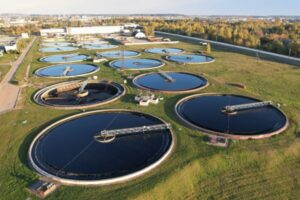The global race to a net-zero future faces one of its most formidable challenges in the heavy transportation sector. Industries like long-haul trucking, marine shipping, and aviation rely heavily on fossil fuels, which provide the high energy density and long ranges that are difficult to achieve with current electric battery technology. For these sectors, a full transition to electrification remains a distant prospect. However, a powerful, ready-to-deploy solution is available today: advanced biofuels. By converting society’s waste into clean, sustainable energy, biofuels are playing an essential role in decarbonizing the transportation industry, and Clean Stream Fuels is at the forefront of this effort.
The Challenge of Decarbonizing Heavy-Duty Transportation
Heavy-duty vehicles, ships, and airplanes are integral to our economy, but they are also major contributors to greenhouse gas emissions. Unlike passenger cars, which are rapidly electrifying, these larger vehicles require immense amounts of energy to travel long distances and carry heavy loads. The weight and volume of batteries needed to provide a comparable range would be impractical and prohibitively expensive. Therefore, a “drop-in” fuel—one that can be used in existing engines and infrastructure—is crucial for immediate and scalable carbon reduction.

Biofuels: A Ready-Made, “Drop-in” Solution
Biofuels are liquid or gaseous fuels derived from biomass, such as agricultural crops, algae, and organic waste. When produced from waste feedstocks, they offer a powerful dual benefit: they divert waste from landfills (where it would produce harmful methane) and displace fossil fuels. Critically, these advanced biofuels can be used in existing combustion engines with little to no modification, providing an immediate pathway for emissions reduction in fleets and vehicles that are already on the road, in the air, or on the water.
Clean Stream Fuels’ Contribution to Green Transportation
Clean Stream Fuels provides the innovative technologies to produce the types of biofuels that are essential for decarbonizing heavy transportation:
-
HTL to Sustainable Liquid Fuels:
Our advanced Hydrothermal Liquefaction (HTL) process transforms high-moisture organic waste into a valuable biocrude oil. This biocrude can then be refined into a range of sustainable liquid fuels, including renewable diesel and, most importantly, Sustainable Aviation Fuel (SAF). The aviation industry, with its unique energy requirements, sees SAF as a critical technology for meeting its ambitious decarbonization goals. By converting waste that would otherwise go to a landfill into a high-quality, low-carbon fuel, we are helping to create a circular economy for the transportation sector.
-
AD to Renewable Natural Gas (RNG):
Our sophisticated Anaerobic Digestion (AD) systems capture methane from organic waste streams and upgrade it into pipeline-quality Renewable Natural Gas (RNG). This RNG is a direct replacement for fossil natural gas. For heavy-duty fleets that run on compressed natural gas (CNG) or liquefied natural gas (LNG), RNG offers a low-carbon, cost-effective alternative to diesel. It is an ideal fuel for public transit buses, refuse trucks, and regional haulers, allowing them to significantly reduce their carbon footprint without changing their vehicles or refueling infrastructure.
The Impact of Biofuels on the Carbon Footprint
The use of waste-derived biofuels creates a significant reduction in overall greenhouse gas emissions. When these fuels are burned, they release carbon that was recently captured by plants through photosynthesis. This is considered part of the natural carbon cycle. In contrast, burning fossil fuels releases carbon that has been trapped underground for millions of years, adding new carbon to the atmosphere. Furthermore, by diverting organic waste from landfills, we prevent the release of potent methane emissions, providing a powerful dual climate benefit.
Leading the Charge Toward a Sustainable Future
The role of biofuels in decarbonizing heavy transportation is clear and essential. They offer a practical, immediate, and scalable solution that can drive significant emissions reductions while industries work toward developing next-generation technologies. Clean Stream Fuels is proud to be a key provider of these solutions, partnering with municipalities and industries across the USA to transform waste into the sustainable fuels that will power a cleaner future for our roads, seas, and skies.
To learn more about how our innovative technologies can help your organization meet its decarbonization goals, explore our technology pages or contact our expert team today.
#Decarbonization #Biofuels #GreenTransportation #SustainableFuels #RNG #SAF #CleanStreamFuels



